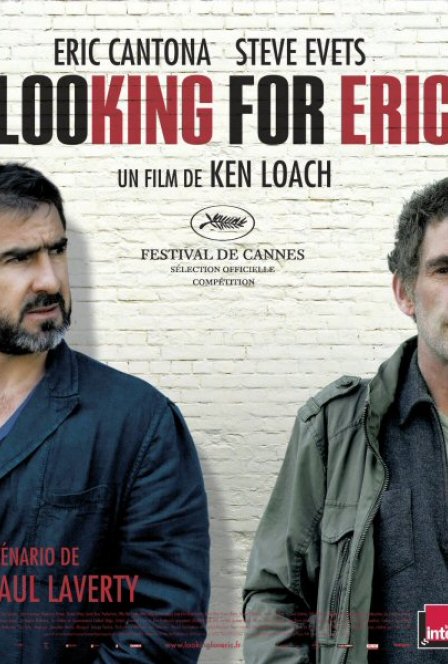A midlife-crisis movie has to be funny if it’s going to hold up, as there are just too many ways to fail when telling stories about sad-sack divorcees. While the sub-genre doesn’t birth many classics as a whole, the memorable ones are marked by an unforgettable character, a stellar performance, a tight script. Here we have one of those cases. Beyond its charm, Ken Loach’s Looking for Eric has more humor than one expects from this type of a film. It’s that rare picture that advertises its sentimentality on the poster yet smartly avoids the myriad pitfalls of saccharine dramadies.
As the title suggests, Looking for Eric is all about that glorious trope: the rediscovery of self. Eric Bishop (Steve Evets) is a single father raising two unruly stepsons and going through the motions every day as a mail carrier. After a failed second marriage, and with middle age settling in, he realizes that he is still in love with his first wife, Lily (Stephanie Bishop). As fate would have it, Eric is given a chance to reconnect with Lily, but he is ashamed of who he was and who he has become. With his life in a tailspin, Eric finds solace in his son’s stash of weed and an imaginary incarnation of his hero, French soccer legend Eric Cantona. Their daily conversations bring Eric newfound confidence and, with a little bit of help from his friends, he begins to take control of his life.
Shot entirely on location in Manchester, the film has a fitting blue-collar feel, with both the game-time fervor of European football fanaticism and an undercurrent of despair. Evets, as it turns out, is an ideal choice for the lead. He looks and acts the part, yet he isn’t as pitiful as, say, Paul Giamatti. Most Americans won’t recognize the film’s other star, soccer player Eric Cantona, which may work to its benefit. Cantona — who was notorious for his post-game shenanigans, as well as his greatness on the pitch — gave up soccer at the height of his career because he didn’t want to fizzle out; he only wanted to be a champion. He’s an apt choice to complement the other Eric, who not only needs a great deal of confidence-building, but perhaps some therapy too.
Paul Laverty, who has been Loach’s primary screenwriting partner for the past 15 years, has crafted a script that sets this film apart from the genre’s also-rans. The dialogue is witty, affecting, and never stagnant. It seems strikingly unique, as it plays within a style that generally prescribes to formulaic retreads. As a supporting cast, Eric’s fellow postal workers are really in a class of their own. Being common men, one would think that their humor would be completely low-brow. Instead, it’s cheeky and lighthearted, with clever barroom banter and off-the-cuff repartee in defense of their beloved Manchester United Football Club. At least two scenes — including one where the ringleader introduces his clueless postal workers to guided meditation — could not have been written any better.
The film could be a sleeper hit, though it is slightly hampered by some misdirection in the second act, with a violent sequence that is far too intense for the subject. Fortunately it recovers, righting itself when it matters. Unless you have a cold heart, it would be hard to dislike this film. Otherwise, Looking for Eric will certainly be rewarded with multiple viewings.

